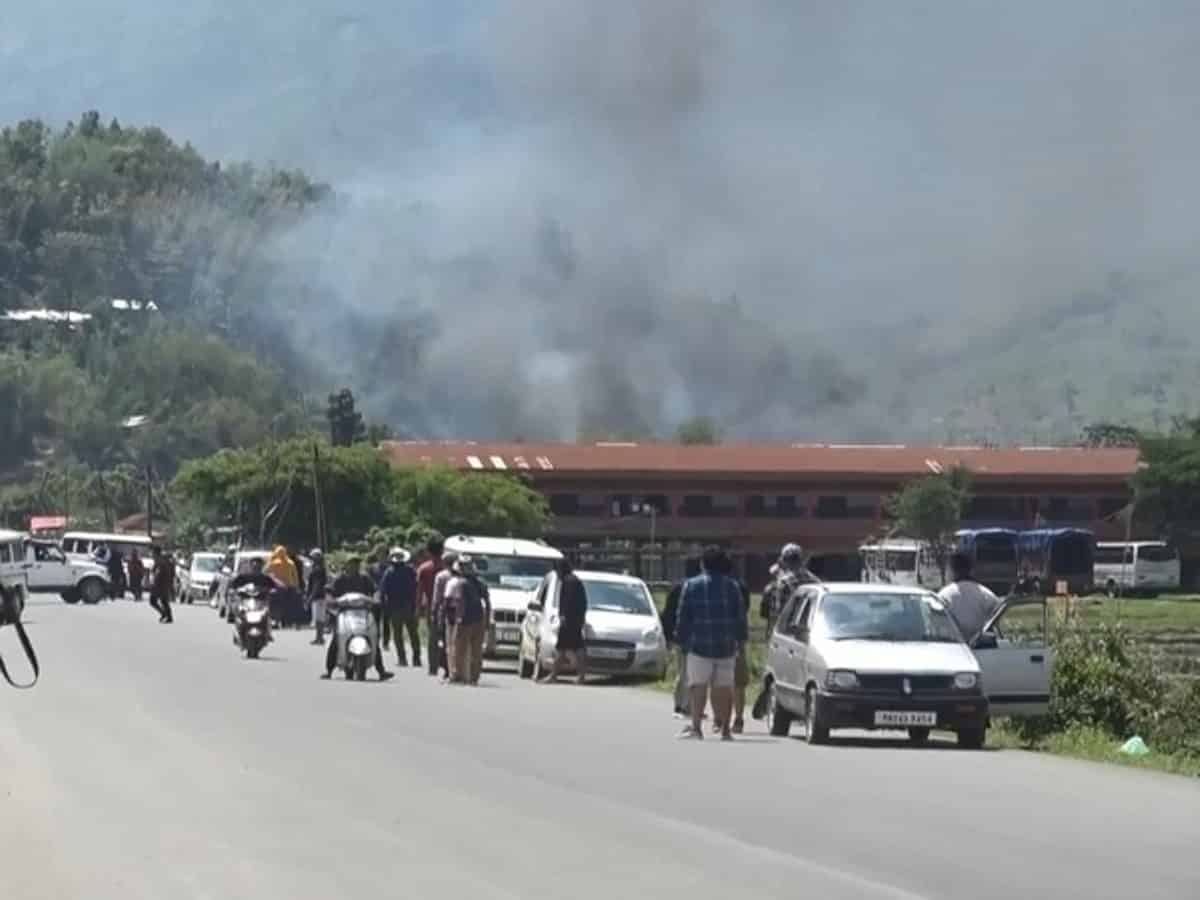
Imphal: In a major setback to the government’s efforts to restore peace in Manipur, an important Meitei civil society organisation on Tuesday announced its withdrawal from the peace committee while an apex Kuki organisation expressed their unhappiness over the committee’s unilateral formation and objected to inclusion of Chief Minister N.Biren Singh in it.
The 51-member peace committee, headed by Governor Anusuiya Uikey, was set up by the Union Ministry of Home Affairs (MHA) last week to facilitate the peacemaking process among various ethnic groups of the state, including peaceful dialogue and negotiations between conflicting parties or groups in Manipur, where devastated ethnic violence since May 3 killed over 105 people and injured more than 320.
Coordinating Committee on Manipur Integrity (COCOMI) Convenor Jeetendra Ningomba said that they are “extremely dissatisfied” with the composition of the peace committee.
“COCOMI rejected this committee since the sentiments of the people living in the valley region are very high against the Kuki militants groups and we had demanded the govt that first they should withdraw Suspension of Operations with the militants,” Ningomba told the media.
He said that peace cannot be achieved in Manipur unless the pressing issues of narco-terrorism and illegal immigration are effectively addressed, but the government did not do anything.
“We work with the people and people want action against Kuki militants. Until actions against the militants are not taken, we reject this peace committee.”
The COCOMI convenor also claimed that his inclusion in the committee was also done without his consent.
On the other hand, the Kuki Inpi Manipur, in a statement, said that its President was nominated as a member of the peace committee without prior and proper consultation and information, and the group objected to the government’s unilateral decision.
“It must be put on record that the Manipur government led by Chief Minister N. Biren Singh has lost all credibility by orchestrating communal attacks and sponsoring radical and extremist groups as Arambai Tenggol and Meetei Leepun against the Kukis,” the statement said.
It said that the KIM has reiterated time and again that it has always treasured the idea of peace and is always open to welcome the same.
However, any call for peace or therefore any effort to ensure “lasting peace” needs to be focussed on the right approach with the proactive involvement of all stakeholders on a proper table. Similarly, any blatant bull-dozing and authoritative and arbitrary direction such as this one can only hamper the peace process, the statement said.
“The Kukis want peace that must entail the essence of justice which can only be realised with the immediate cessation of all state sponsored violence and attacks on the Kuki people and their habitations.”
The KIM does in no way welcome any idea of peace amidst violence that continues to threaten the integrity, safety and security of our land and our people, the statement said.
Kuki-based civil society organisation Indigenous Tribal Leaders Forum (ITLF) has also condemned the inclusion of Chief Minister Biren Singh in the panel.
“The creation of such a Peace Committee… by the Central government must be made only after conditions of normalcy and security for Kuki-tribal villages have been secured,” the ITLF said in a statement.
Sources said that the Kuki representative in the peace committee is unlikely to attend the meetings. Leaders and representative of the Meitei, Kuki, Naga, Muslim, Nepali, intellectuals, community are the members of the peace Committee, which also included Biren Singh, a few state Ministers, MPs, MLAs, leaders from different political parties, former civil servants, educationists, litterateurs, artistes, social workers and representatives of different ethnic groups.
The ethnic violence began in Manipur on May 3 after a ‘Tribal Solidarity March’ was organised in the hill districts to protest against the Meitei community’s demand for Scheduled Tribe (ST) status.
Meiteis account for about 53 per cent of Manipur’s population and live mostly in the Imphal Valley.Tribals Nagas and Kukis constitute another 40 per cent of the population and reside in the hill districts.



